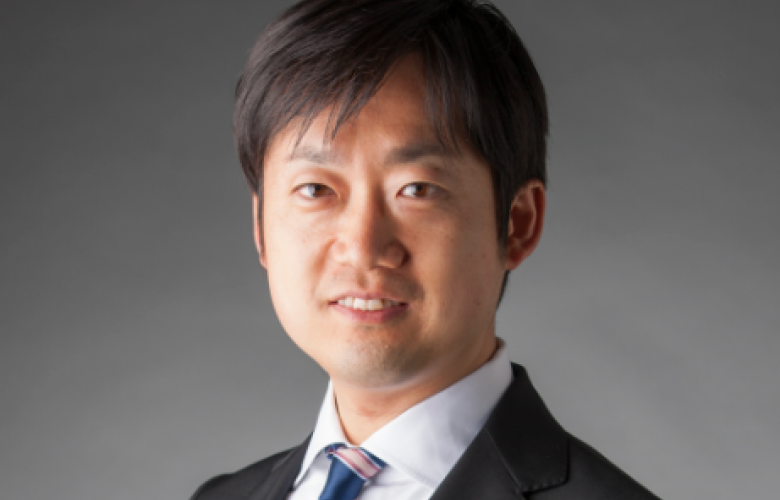Tetsuya Kaneko has grown his real estate career during interesting times, starting out in the market as an investment banker around the time that Japanese real estate investment trusts, known as J-REITs, were first launched, and then through the impact of diverse events from financial crises to the 2011 Japan earthquake.
He has covered the real estate markets mainly in Japan, spent several years at the World Bank Group developing his international macro economic experience, and has worked with clients from around the world.
As Savills Japan’s Head of Research & Consultancy, Tetsuya's responsibilities include consulting services to local and international investors, landowners, developers, occupiers and the public sector across multiple asset classes.
How did you get into the real estate industry?
I joined the real estate industry as a real estate investment banker when J-REITs were established in the early 2000s. It was an interesting time to see the new market grow from scratch.
What are some of your career highlights from your time in the industry?
One highlight has been to observe firsthand the most significant property cycle before and after the global financial crisis.
How do you best help a vendor selling their property?
First of all, both buyers and sellers need to be fully informed of what is happening. The best way is to carefully read through our report suite:
Buyers need to be aggressive to outbid others: there are limited investment opportunities but investment demand is strong. Sellers should be tad more flexible on pricing: buyers may not be more aggressive, given already tight cap rates.
What are the biggest issues facing the industry in your market at the moment?
There are very limited investment opportunities, especially for core investors.
How has the industry changed in the time you have been involved with it?
The market has developed well and real estate has become a popular financial asset class. This trend is likely to continue.
What changes would you like to see over the next two to five years in the industry?
Massive redevelopments, as well as infrastructure improvement are going on towards and beyond The Tokyo Olympics in 2020. They will transform the Tokyo’s landscapes and make the city more attractive and accessible. This should have a long-term positive impact in Tokyo and investors.
What advice do you have for people who are just starting out in similar careers?
It is important to have a long-term view and mindset in this industry. The industry is cyclical and participants need to whether dynamic changes occasionally.
What advice would you have for those looking to come into markets like Tokyo/Japan and set up a real estate business?
Since real estate is a local business, you should have local connections or preferably local presence.
What do you believe is a unique factor of doing business in your market?
Real estate is a local business and every market has a unique local factor. I believe local connection and credential are especially important in Japan.
What is your favourite holiday destination in Asia?
Scuba diving in the Pacific. For instance, Okinawa, Palau, and Saipan have world class diving.
What’s your outlook for 2018?
In 2018, demand for Japanese real estate is likely to remain strong considering the country’s positive leasing prospects and stable macro climate. A potential change in lending attitude may percipitate sales and help transaction volumes increase. If global concerns such as trade war deteriorates, we may correct this view to slightly more bearish direction.
What are the opportunities in the market place at the moment?
Demand for Japanese real estate remains strong and competition for quality assets is fierce. Pension funds such as GPIF and other government-related entities intend to increase their exposure to real estate for diversification and improved returns. J-REITs may come back to the market in 2018 if outflows of J-REIT focused mutual funds stabilise. There may be more opportunities for various players in 2018. Our report has some of our investment ideas for Japan.
What advise do you have for people looking to buy real estate in Tokyo/Japan?
Even after the recent market corrections, globally, stocks stay at highs, including Japanese stocks. Bond valuations also remain bullish. In light of this new normal, Japanese real estate remains attractive, considering its favourable yield gap, stable nature, and room for rental improvement. Hence, more and more core money are coming to Japan for stable yields. I would recommend to invest in Japan with core type money and aim at stable income over the long-term basis.
Where would your next purchase be?
If somewhat more opportunistic, investors are seeking out opportunities in Japan’s regional cities such as Fukuoka and Osaka. Regional offices have shown strong growth. With tight occupancy and limited supply, rental growth is likely to continue. However, very low availability also means that rental growth could take more time going forward.
More from Tetsuya
Tokyo Residential Leasing Briefing - Q2 2016
Japan Q1 2016 Investment Quarterly
Japan's Hospitality Industry in the Spotlight
Japanese Investment Report 2H 2015
Savills Japan 2015 Review and 2016 Prospects





